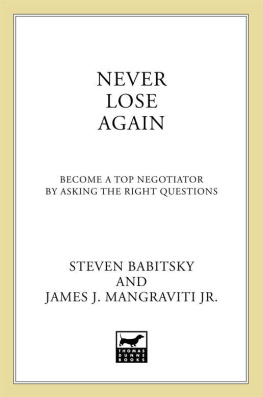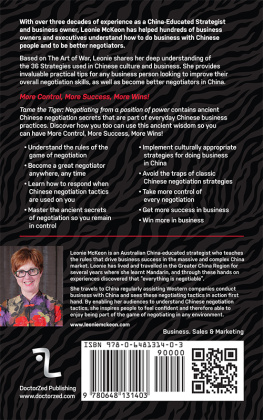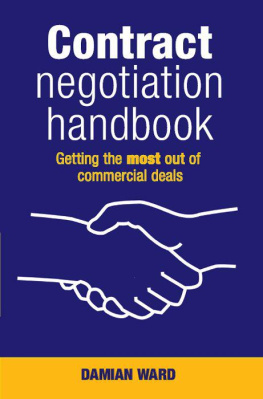
To Alex, Karen, Jimmy, and Katie
CONTENTS
ACKNOWLEDGMENTS
Billy and Peter, you each made this book far better than we ever could have made it without your help. We are deeply grateful.
INTRODUCTION
Larry, a twenty-four-year-old apprentice electrician and Vietnam veteran, was working on a triple-decker house in Boston, Massachusetts, installing outside lighting. He leaned back against a railing that cracked, sending him falling backward. He hit a clothesline on his way down and broke his neck. Larry was taken to the hospital, underwent surgery, and was told several days later that he was permanently paralyzed from the shoulders down and was a quadriplegic. After his hospital stay, the workers compensation insurance company, which was responsible for his care, moved him to a one-bedroom handicapped apartment in an elderly housing unit. The insurance company paid his twenty-three-year-old wife $150 a week to take care of him twenty-four hours a day. His wife became exhausted and desperate. After a year she divorced him and married his best friend. Larry was now left alone, with sporadic care, and was deteriorating physically and mentally.
Larry contacted a law office and asked for help. A young lawyer went to his house and met him. He was so upset about Larrys condition and situation that he was unable to return to his law office that day. The young attorney actually felt physically ill.
The fresh-out-of-law-school lawyer represented Larry for three years, helping him pursue his workers compensation claim against the insurance company. During these years he was able to negotiate for a handicapped van, an accessible home, twenty-four-hour health care, and eventually a generous settlement that provided him with lifetime security. Larry was able to move to a warmer climate, Southern California. His full-time nurse moved with him, and he has been healthy and happy for the past thirty-five years. He remains a good friend of the lawyer to this day.
At the conclusion of the negotiated settlement with the workers compensation insurance company, Larry asked his lawyer to come close to him in his wheelchair and whispered in his ear, Steve, you saved my life.
The young lawyer in this story is one of this books authors, Steve Babitsky. It was at this time that Steve realized for the first time the power of effective negotiating, and how much of a difference it can and does make in the lives of the people it touches. This experience ignited a passion in Steve for developing negotiating skills, and teaching those skills to others.
A young lawyer from Steves alma mater, Boston College Law School, joined his training firm in 1993. His name is Jim Mangraviti and he became Steves protg and coauthor on numerous books, including this one.
Together we run our nationally renowned training and consulting firm, SEAK, Inc. Many of the examples and stories in this book come directly from or are inspired by our business dealings over the years.
This book is intended to empower the reader to markedly improve his or her life through effective negotiating. Our aim is to change the way people think about and approach negotiations. Many people dread negotiating. Many are just poor negotiators. We make better negotiation results simple and easy to achieve. Negotiating is a fact of life and is essential for obtaining what you and your family deserve. Avoiding negotiation is not an option. Its a necessary part of daily life, from your phone bill to your professional dealings at work. The only choices are: learn to thrive and succeed or suffer the consequences. This book will teach the reader how to be a much better negotiator.
About ten years ago, a shocking negotiation episode we both witnessed first-hand finally pushed us to act to help our clients become better negotiators.
We were in Hawaii teaching a training course for physicians that our company was putting on. With us was a young primary care physician who was neither a high-earner nor wealthy; he was a father of four, living paycheck to paycheck (well call him Ted). His dream was to someday retire to Hawaii. At lunch Ted asked us to take a look with him at a condominium that was for sale nearby.
We had one hour for lunch, so we and Ted drove over to the condominium complex to look at a two-bedroom unit. The listing agent for the condo was present, and Ted went on and on to her about how he loved the unit, how he knew it would go up in price, and how his dream was to retire to Hawaii. The (by-then salivating) agent informed Ted that this was the only unit of its type left, a couple was coming to put a down payment on this particular unit in a few hours, and the price was $250,000.
The shocking negotiation we witnessed consisted of the following:
Ted: I really want this. Can I negotiate the price?
Realtor: No.
Ted then called his wife and asked her how much money they had in their emergency checking account. He then asked her to FedEx their checkbook. He proceeded to sign dozens of pages of documents provided by the agent in blank (they didnt even specify what unit he was buying or the price), without reading them, and purchased the unit at the full asking price, all within thirty-five minutes.
The three of us returned to the seminar. We couldnt believe what we had just witnessed. We were stunned. How could a person as intelligent as a physician be such a terrible negotiator? How could he be so gullible as to fall for the line about a couple coming back with a deposit? How could he be so reckless as to sign numerous legal documents in blank without even reading them himself, never mind having a lawyer review them. Anybody who knew even basic negotiation skills such as not showing your hand, generating power, and asking the right questions, might have been able to save tens of thousands of dollars on this purchase. After we got back to the training session, Ted told his story about how he had just purchased the condo over the lunch break, and immediately two or three other physician colleagues in the seminar went over to see if there were any units available for them!
This was the moment when we both realized that there was a desperate need for even highly educated people to learn how to negotiate. This realization is confirmed time and again by recent events. One need not look any further than the botched attempt by Jerry Yang to sell Yahoo to Microsoft in 2008. His clumsy strategy and attempt to sell his company is the classic example of a failed negotiation and what can go wrong when you do not understand how to negotiate. In May 2008, Yahoo CEO Jerry Yang was offered $45.7 billion by Microsoft CEO Steve Ballmer to acquire Yahoo. This was rejected by Mr. Yang, who was holding out for $55 billion. After months of rejections by Yang, Mr. Ballmer had enough and completely withdrew his $50 billion. This failed negotiation cost Mr. Yang his job and resulted in a loss to Yahoo of approximately $20 billion. We see it all the time in the news, with high-profile mergers like the Yahoo one, but negotiation, no matter how big or small, is part of everyones everyday life as well.
After the Hawaii condo incident described above we decided to act. We soon added in-person negotiation training to SEAKs lineup of seminars and consulting services. Our negotiation training was delivered through continuing education seminars, in-house corporate training, and one-on-one negotiation consulting. We also coauthored two successful books, which SEAK published, on how physicians can become better negotiators.
The concept for this book evolved out of our training of thousands of professionals across the United States. During this training we learned two main things:
Next page








